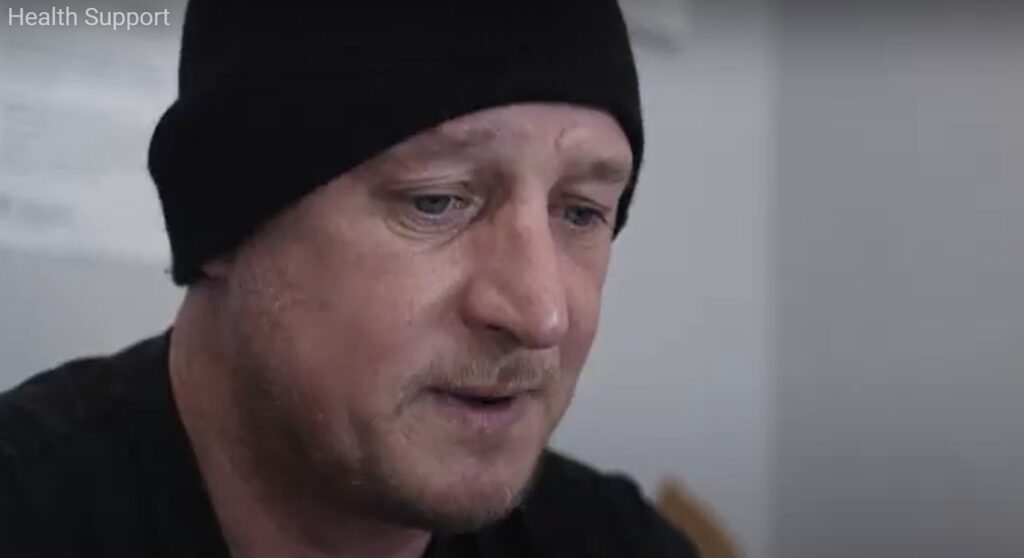People facing severe and multiple disadvantages routinely struggle to access appropriate health care. We understand that one size cannot fit all, and we advocate for joined-up responses to the needs of the people we support.
What we do
We run a range of CQC regulated health and care services, including substance use treatment services and a specialist care home.*
We work with a range of national and local health and care systems – including the Office of Health Improvement and Disparity, the Department for Levelling Up, Housing and Communities, Integrated Care Boards and Placed Based Partnerships – to improve access and engagement within health services for the people we support.
This work has resulted in improved provision of homeless mental health treatment, community provision of acute hospital functions and enhanced contracts for primary care, where registration is simplified and appointments are delivered flexibly.
Our psychologists work across all our services and wider system partners to embed best practice in trauma-informed care across the board.

Our substance use support services in Nottingham and Lincolnshire are partnership-based, resulting in universal treatment designed around people with more complex needs. Both services are specialist in rough sleeping, criminal justice and mental health support, and harm reduction and sexual health interventions.
The Level is our medically managed in-patient detoxification unit. It serves Nottinghamshire, Lincolnshire, Leicestershire, Derbyshire and Northamptonshire.
The team specialise in accepting people considered too complex for other detox units and ensure equitable access to treatment for all.
Edwin House is our specialist care home for people with a history of substance use, who due to past trauma struggle to access and maintain care in any other setting. “People received care and support that helped them to lead their lives, independently of staff support, to reduce or end their reliance on alcohol and/or drugs…” CQC Inspection.
We provide a range of mental health services including mental health social prescribing, floating support and stabilisation services. This allows us to positively influence and reinforce statutory provision. We also offer crisis support until 11pm, 7-days a week.
Our system change principle
Complex system design and exclusion criteria and stigma, results in the universal services we take for granted being restricted for those who need them most.
The average life expectancy for someone experiencing severe and multiple disadvantages is 46, compared to the national average of 77. This gap is often due to underlying health problems exacerbated by the circumstances people are in, and being hidden from the structures designed to help.
We advocate for joined-up responses to the needs of people who experience severe and multiple disadvantages and provide them directly where necessary. People with more complex needs (for example homelessness and mental ill health) need to have equitable access to health care, and this means the system itself needs to change.

Make a referral
We deliver a large number of specialist health services to people with a diverse range of needs. The majority of our services require a referral via a relevant local authority or another service such as the NHS or probation. You can find out more about how to get help here. A small number of our health services accept self-referrals (which means you can contact us directly for support). These are listed below.




